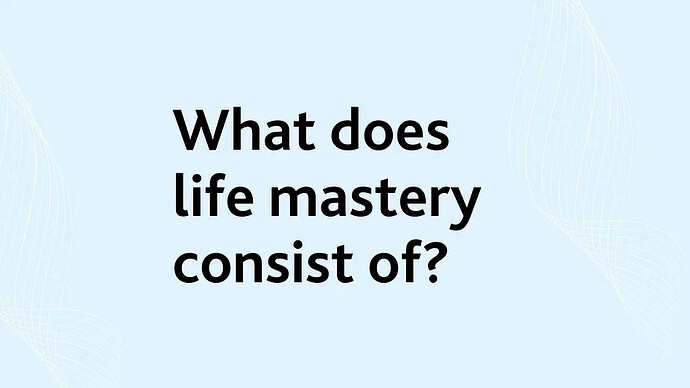Before we talk about the structure, let’s define the main requirements for life skills. Every person wants his life skills to lead him to happiness, success, well-being, longevity. These generally accepted goals can be clarified and detailed. The life skills of a modern person should allow:
- always be in demand as a specialist and professionally play new roles (professions), be able to create successful systems and change the world;
- be ready to solve any new tasks that life throws at us in the future;
- manage your interests and needs, emotions and feelings, attention and joys (flow), and not be guided only by biological needs and worldviews offered by the social environment.
Based on such requirements, it is possible to divide life mastery into three components: applied mastery, mental mastery, and mastery of self-collectedness. This division of life mastery is just a model proposed at Aisystant, and there may be other models. In our model, we highlight different behaviors with attention. Such a functional division allows us to discuss separately what a particular person needs to develop in himself and with what help this development can be done. That’s what every part of life’s mastery is responsible for:
- with the help of applied mastery, working products are created in the form of formal documents and systems. The level of applied mastery indicates professionalism in the possession of a specific applied method or practice. For example, the practice of accounting allows you to compile an accounting balance sheet, the practice of crawling creates a person who can swim, and the methods of road activity allow you to build a road;
- mental mastery are used when it is necessary to solve new problems: with its help, an incomprehensible problem (situation) is translated into a well-formulated problem, then it is thought out how to solve it, and then the best applied methods for solving the task are determined. Every person has a mental mastery, but everyone has it developed in different ways. One person can quickly and easily figure out a new accounting or road activity for himself, but someone can’t do it. Here, in order to “have enough brains” to quickly understand new problems, applied methods and practices, mental mastery is necessary;
- mastery of self-collectedness helps to gather yourself into a pile at the right time and be ready to take action. Self-collectedness is usually spoken of as discipline, patience, the ability to concentrate, the ability to cope with emotions, etc. Also, by self-collectedness we will understand the physical readiness of the body for certain actions.
Comment this post if you have questions, we are are ready to answer you.
